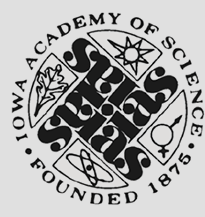Home > Iowa Academy of Science > Journals & Newsletters > Iowa Science Teachers Journal > Volume 27 > Number 3 (1990)
Document Type
Article
Abstract
Success in science results from a variety of experiences and characteristics. Some come from within the individual while others are in the environment. ~ For Native American Indians, achievement in science based upon traditional Western education and national testing traditions does not reflect American Indian knowledge of science or natural events around them. Over the centuries, American Indian cultures have exhibited a closeness with nature, even to the point of considering their relationship spiritual. Cajete (1986) reported that expressions of the science thought process are abundant in historical and traditional American Indian cultures. He indicated those processes have ranged from simple practical technologies developed to survive in a given environment to highly complex and elaborate technologies developed by many of the "high" civilizations of the world. Unfortunately, traditional school testing has been unable to elicit this knowledge or those qualities. Possibly, the way science is presented in text and lesson has something to do with it. Only recently have children examining any science textbook been able to see brown and black faces in print. Beyond the cosmetics of publishing a socially sensitive textbook, however, science is still presented to teachers and children in a manner that conveys the impression that its roots are in the European culture.
Publication Date
Winter 1990-91
Journal Title
Iowa Science Teachers Journal
Volume
27
Issue
3
First Page
8
Last Page
13
Copyright
© Copyright 1990 by the Iowa Academy of Science
Language
en
File Format
application/pdf
Recommended Citation
Wright, Patrice and Haukoos, Gerry D.
(1990)
"Integrating Culture and Understanding of Science through Traditional Fairy Tale Format,"
Iowa Science Teachers Journal: Vol. 27:
No.
3, Article 3.
Available at:
https://scholarworks.uni.edu/istj/vol27/iss3/3

